Art & Culture
- Details
- Written by Silvia G. Golan
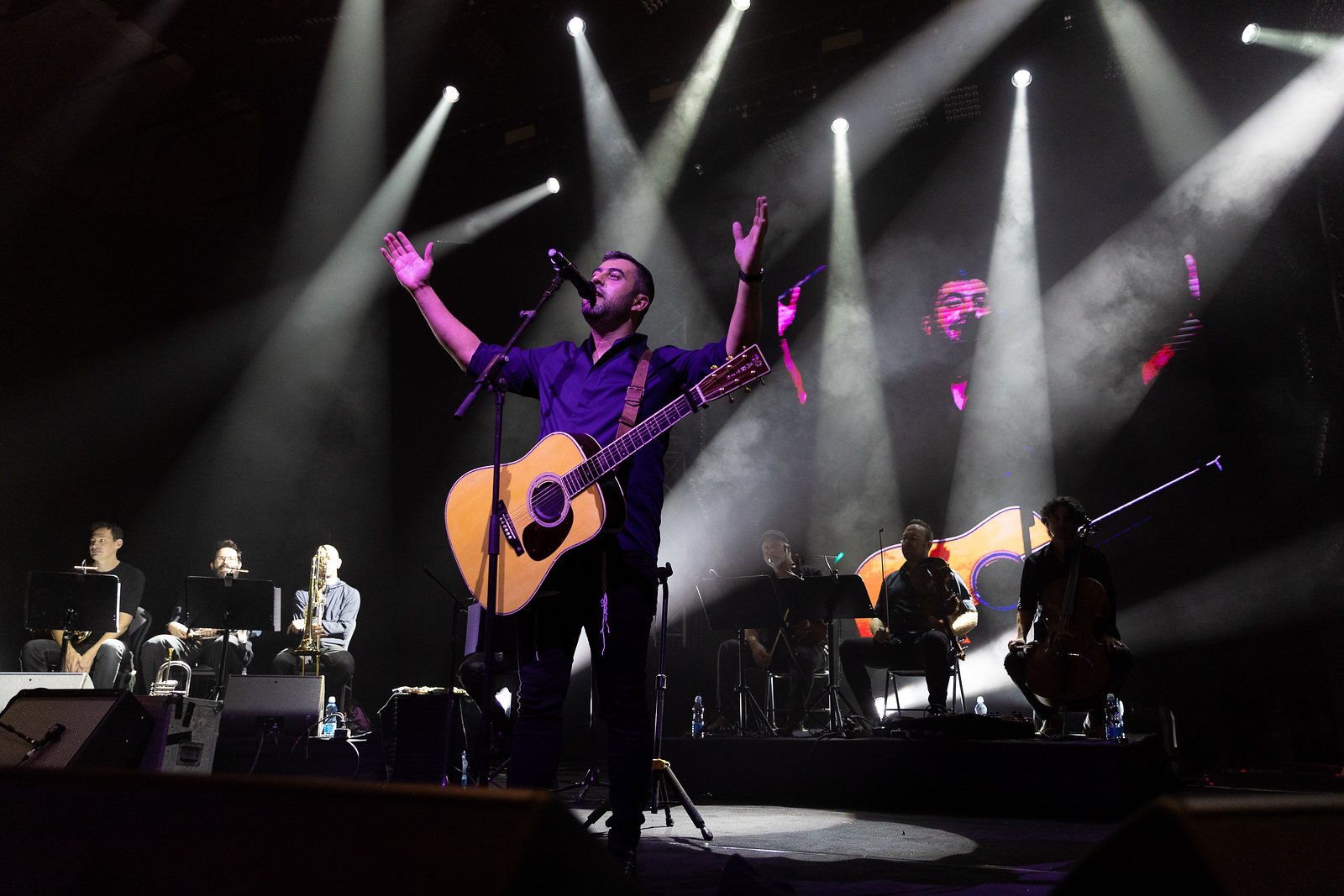
Yeshiva University Hosted Yesterday Sold-Out Ishay Ribo Concert to Celebrate Sukkot, Israel, and its students
Yeshiva University hosted Yesterday the YU Isru Chag Concert, starring Ishay Ribo, at the International Convention Center (Binyanei Hauma) in Jerusalem.
More than 3,000 people attended the sold-out concert and were visibly moved by Ishay Ribo’s ability to distill the poetry and holiness of Judaism into song.
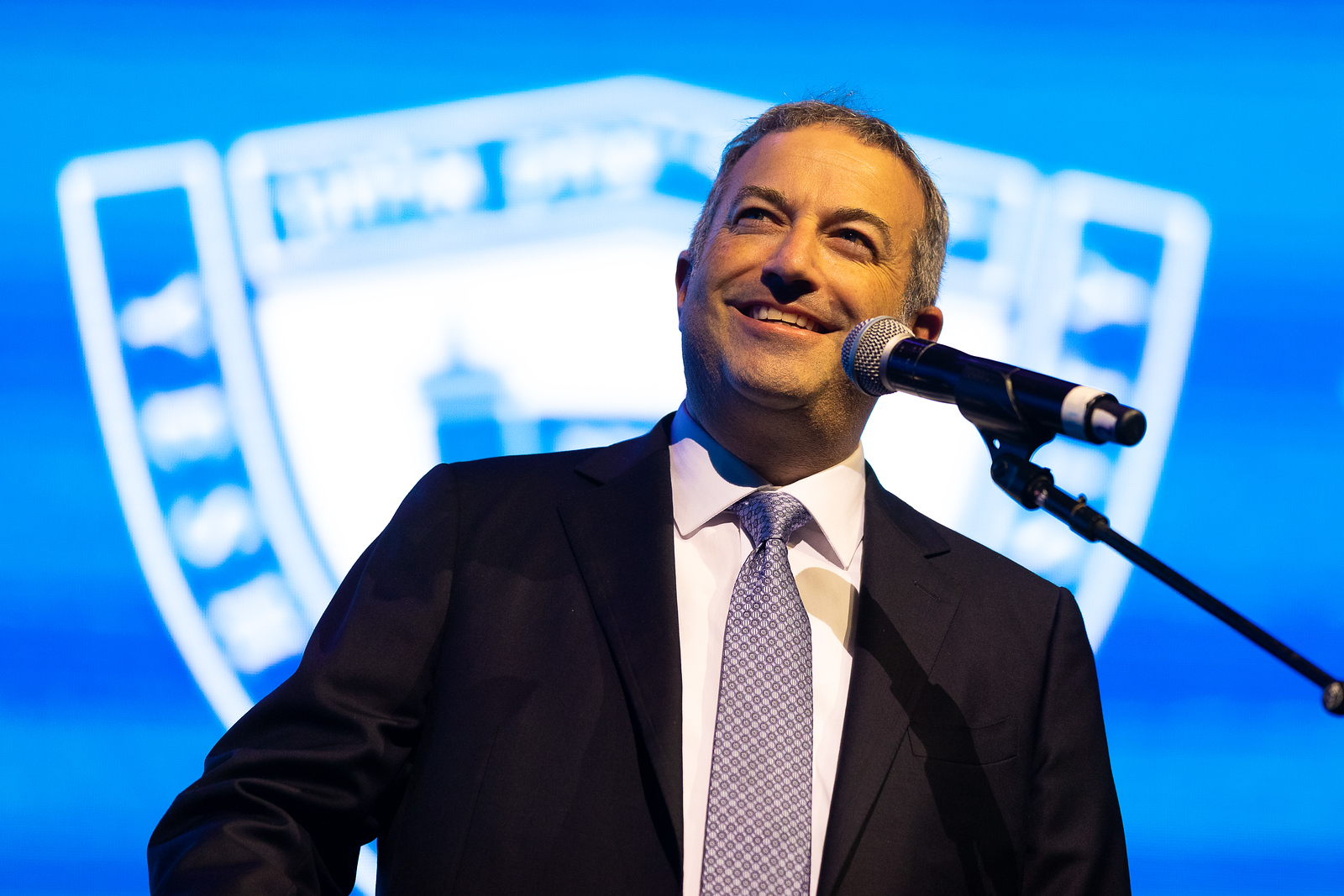
Many of those who attended were YU students studying in Israel and some of the thousands of YU alumni who have made Aliyah, as well as other Israelis eager to enjoy the music and experience this unique cultural event.
The sold-out concert solidified YU’s role as the flagship Jewish University, able to unite Jews from the U.S. and Israel in an evening of joy, unity , and song, bringing an exuberant and moving end to the holiday of Sukkot.
YU has launched numerous educational, cultural, and business initiatives in Israel and the concert spotlighted the dynamic partnership between the University and Israel.
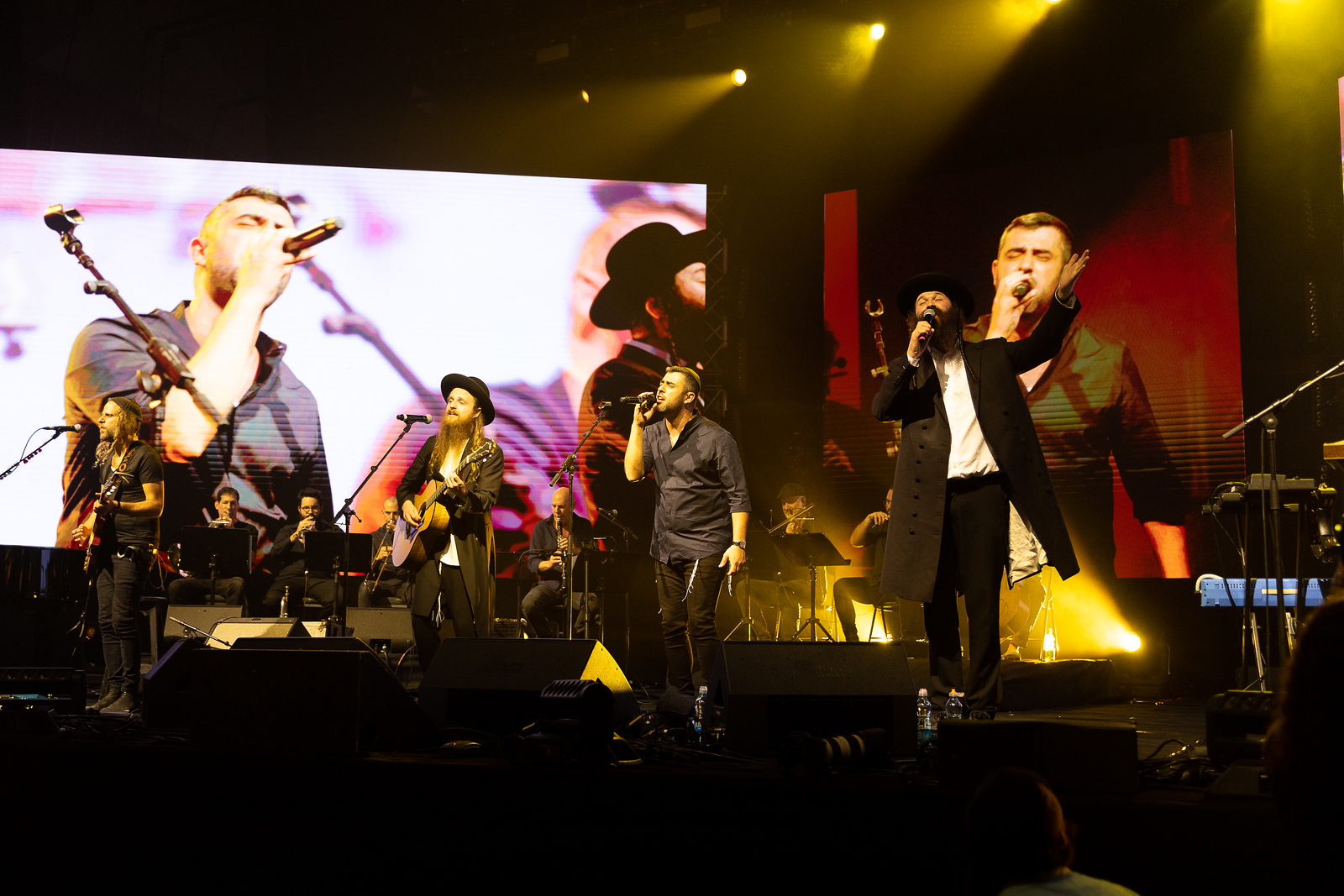
Photo credit: Jared Bernstein
Visit the YU Web site at www.yu.edu
- Details
- Written by Silvia G. Golan & Steven Aiello
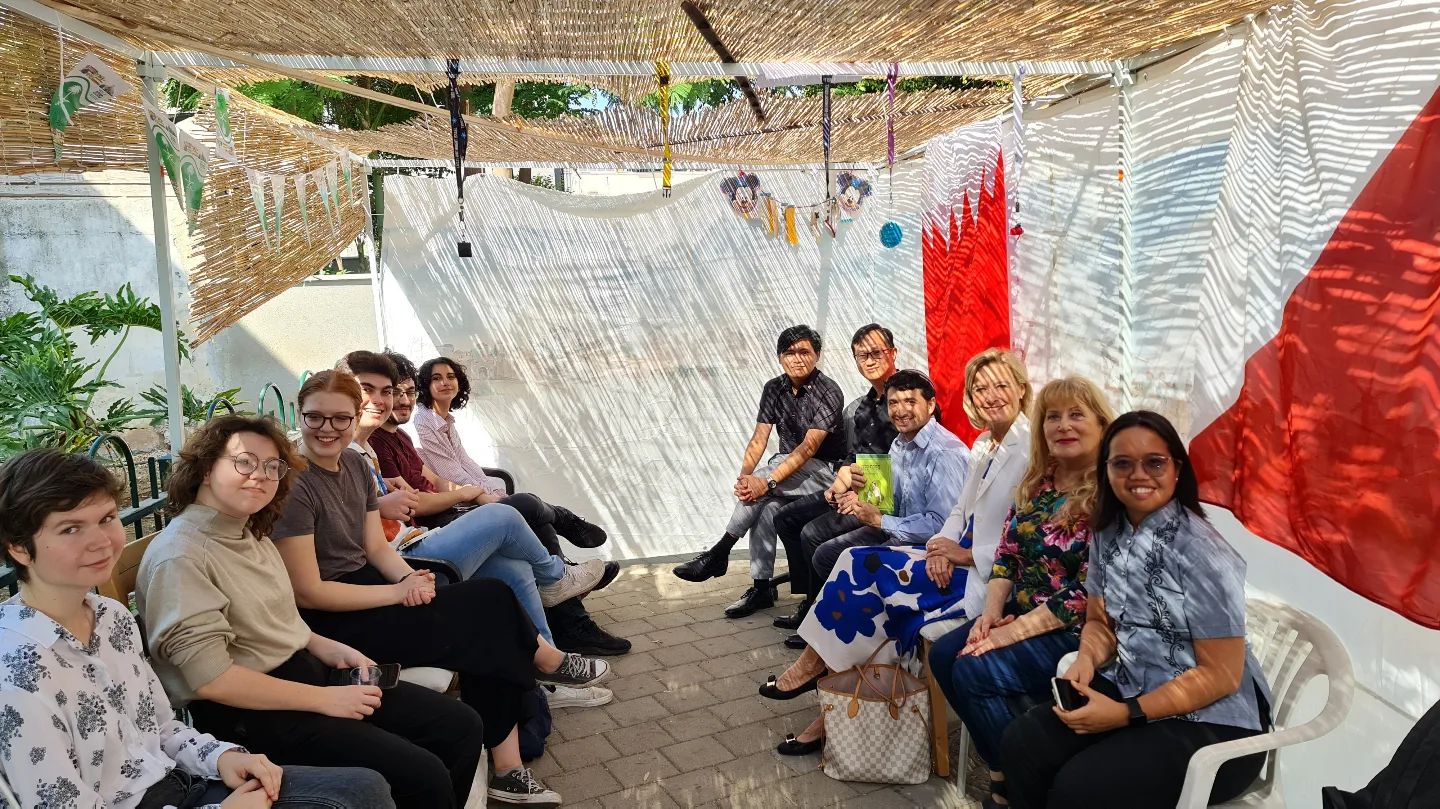
Diplomats and students from 5 religions and over 15 countries spanning 5 continents met in the Sukkat Shalom, hosted by Diplomacy.co.il together with Debate for Peace.
For the third year, Diplomacy.co.il organized Sukkat Shalom meetings with diplomats and diplomacy students from around Israel. This year the meetings were held on Tuesday, Wednesday and Thursday, October 11-13. Participants were welcomed to the sukkah, the traditional structure built during the holiday by Jews all over the world, where they enjoyed refreshments, and learned about the holiday.
A short explanation about the sukkah was given, including the agricultural components of the holiday and its symbolic significance, including reminding people to count their blessings, and leaving the permanence of the home to engage with neighbors and the environment. The four plant species were also introduced, and all the guests got to hold and examine them. Moreover, the guests were told about the third commandment of the holiday–to rejoice and be happy on the holiday!
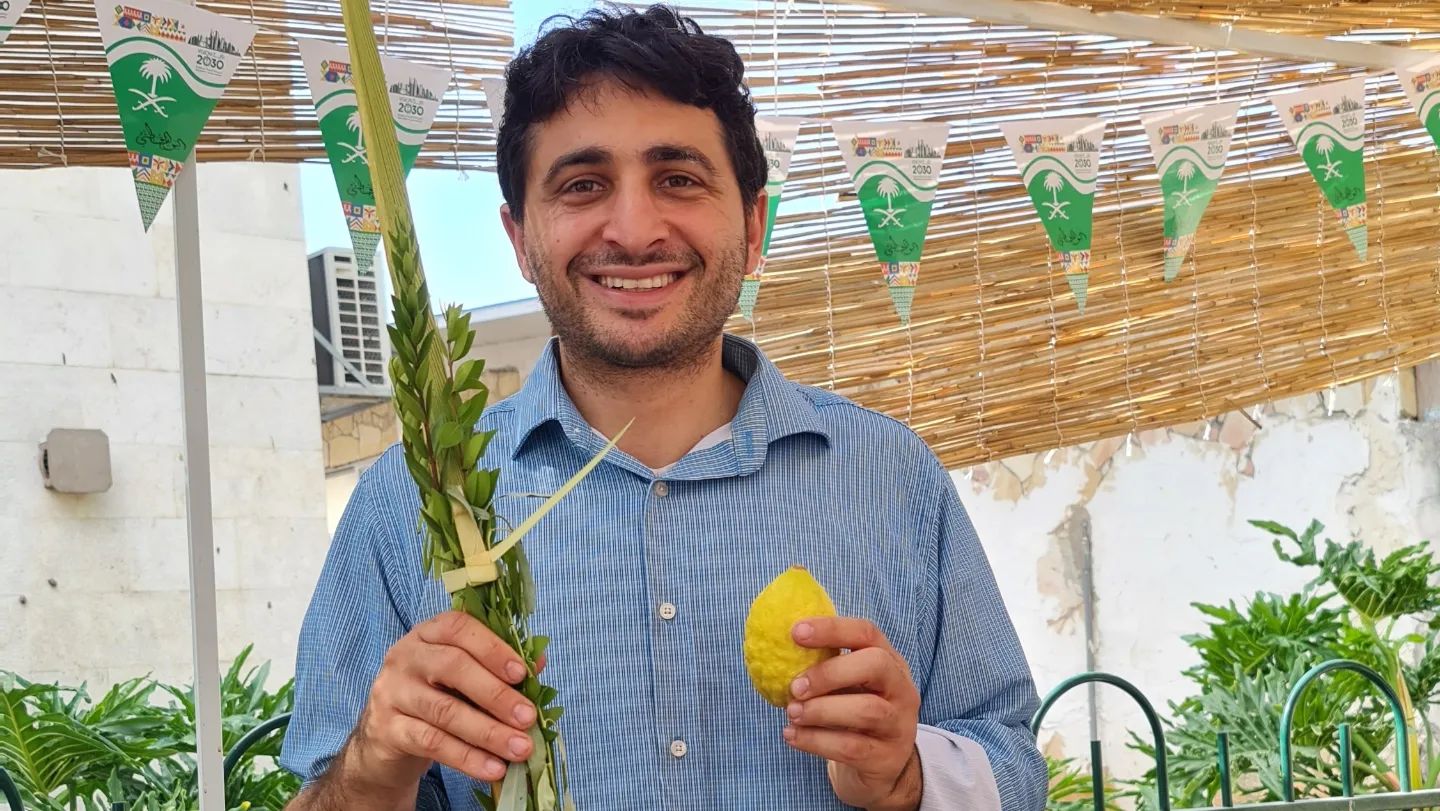
After the introduction, the diplomats introduced themselves and took questions from the diplomacy students, who ranged from 7th grade to university students. The participants also shared experiences about what the holiday meant to them.
In total over 50 people visited the Sukkat Shalom, with the majority visiting a sukkah for the first time. Among the participants this year were the ambassadors of Ethiopia, Finland and Kazakhstan, as well as diplomats from the embassies of Ecuador, the Philippines and Hungary, and the Jerusalem Representative of the Baha'i International Community, and students from Belarus, Brazil, France, Germany, Iran, Russia, the US and Vietnam, as well as Nablus and ten cities around Israel.
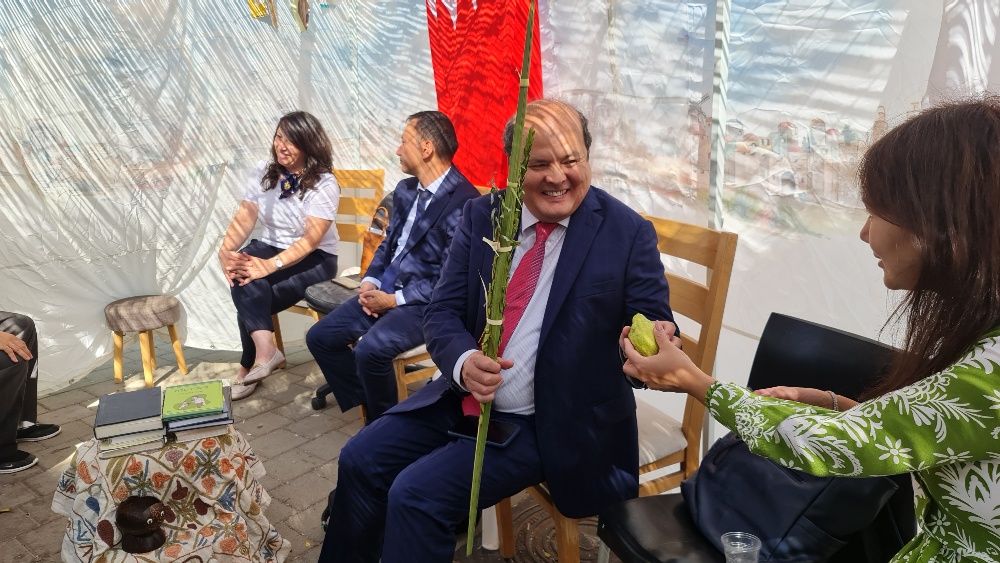
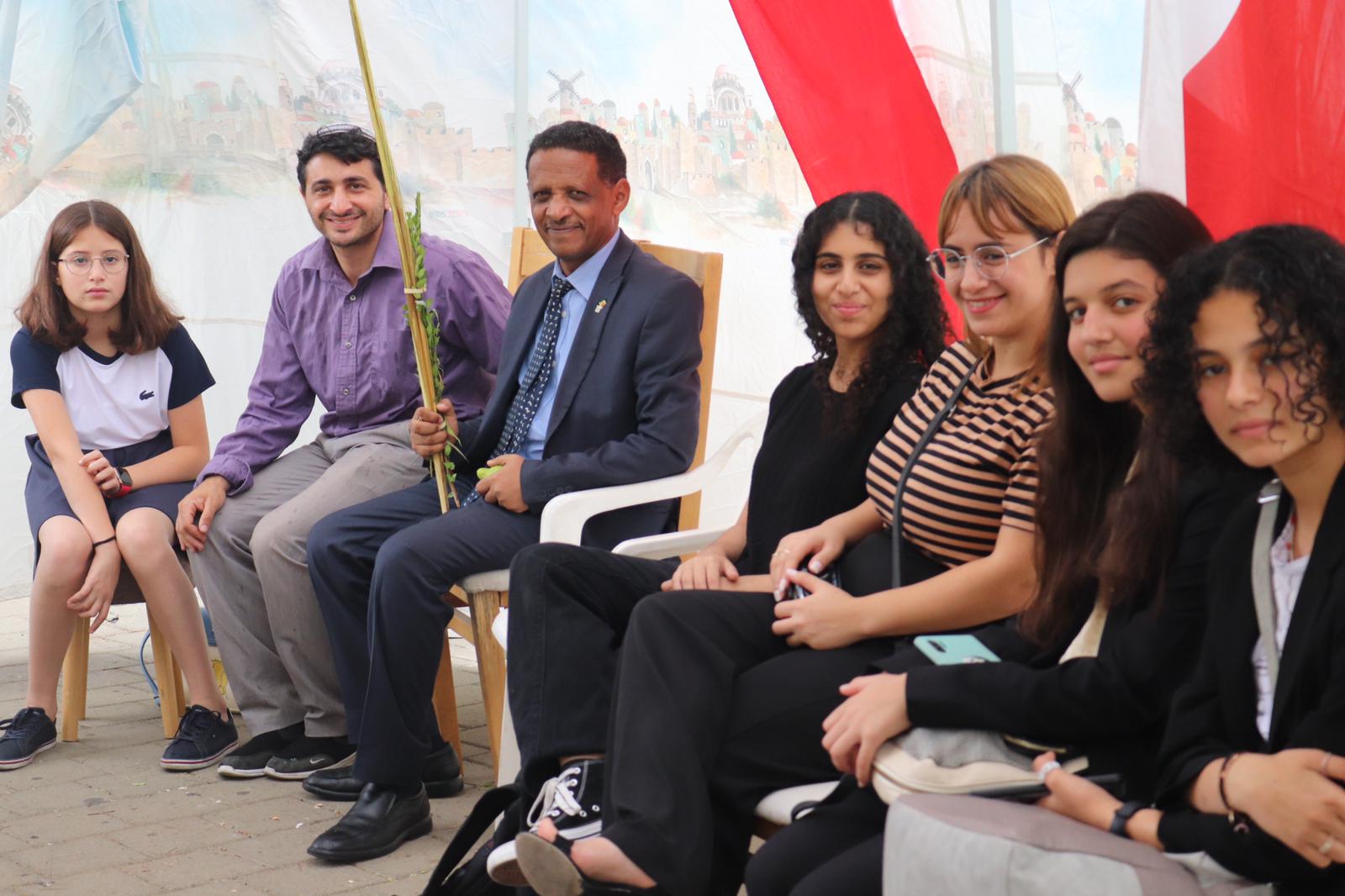
Shai Milstein Gomes, a counselor at the Givat Haviva International School, shared with Diplomacy.co.il that he believes that “through sharing cultural experiences, we open ourselves to new perspectives and new cultures. Having diplomats joining us in a Sukkah for a Jewish holiday is a heartwarming moment that successfully demonstrates international acceptance and respect for our Jewish traditions.”
Mr. David Freeman, the Jerusalem Representative of the Baha'i International Community, said “Thank you for hosting us in your sukkah today! It was a real pleasure to spend time together.”
Vanaya Madera from the embassy of the Philippines added “thank you for inviting us to the sukkah. It was an immersive experience of the Jewish tradition and religion. We hope to have more mutually beneficial opportunities in the future.”
Diplomacy.co.il thanks all of the participants, and wishes all those celebrating a Happy Sukkot holiday.
More Pics at Facebook Diplomacy Israel and Israel Diplo
- Details
- Written by Pamela Hickman
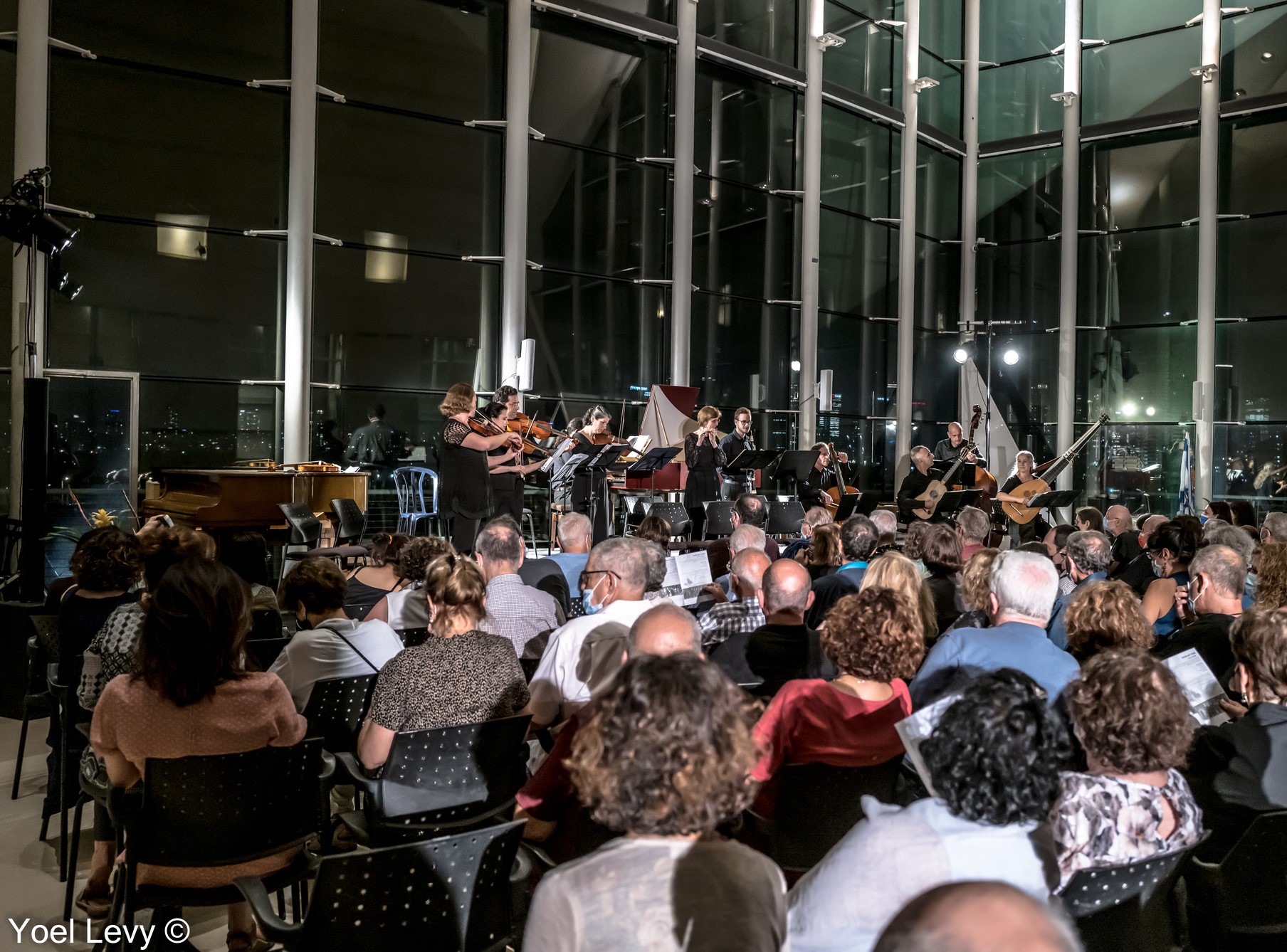
As in 2021, the upcoming Abu Ghosh Festival will once again be held in Tel Aviv, taking place from October 11th to 13th 2022. Popular from the 1950s as an annual event, the festival's organization was taken over in 1992 by music-lover Gershon Cohen and choral conductor Hanna Tzur, the revamped festival then happening twice a year. Attended by music-lovers from far and wide, people have been flocking to the two Abu Ghosh churches to hear the festival concerts, also enjoying the craft stalls, outdoor events and the relaxed, holiday atmosphere. As the Kiryat Yearim Church is presently undergoing renovation, the Sukkot Festival will take place at the Yitzhak Rabin Centre in Tel Aviv. The Rabin Centre, located on a hill, boasts commanding panoramic views of the Yarkon Park and of the city of Tel Aviv, with beautiful grounds and three concert venues – the Leah Rabin Hall, the Round Hall and the Triguboff Gardens nestling in the spectacular grounds. As of 2021, a new team has taken over the running of the festival, most of its members active on the Israeli music scene - Amit Tiefenbrunn - music director, Tessa Harari - management and production, Alon Harari - production coordinator and Yeela Avital - participation director and fundraising. The team has set its sights at creating a multi-sensory cultural experience with music at its core, providing listeners with events of diverse musical styles - western classical music, regional-, ethnic-, folk-, jazz- and classical Israeli music.
Here's a question: how do you prefer your concert program? Strictly classical? If so, you might like to attend Concert No.6: “Bach. Bach? Bach!”- the best of Bach’s Motets, Mass and Concerto for 2 flutes - featuring the Israeli Vocal Ensemble and the Barrocade Ensemble. Or Concert no.11: “Vivaldi - The Four Seasons/Mozart-Exultate Jubilate” with violinist Roi Shiloah and soprano Veronica Brook. Or two concerts introducing the festival's overseas guest choir - Concert no.12 “Motets and Madrigals-past to present'' and Concert no.15, “Shining Dreams'', both performed by Vocapella Limburg, an award-winning male choir from Belgium. In “Romantic Psalms”, Concert No.16, the Tel Aviv Chamber Choir and soloists, directed by Michael Shani, will present an all-Psalm program. "The Reign of Love - Rome and Venice’s Baroque Opera Grandeur” (Concert No.20) will offer festival-goers a glimpse into some 17th- and 18th century Italian aristocratic families, their composers and operas of the time.
But let's say the festival atmosphere tempts you to move “outside the box” and indulge in a little mixing of styles, you might just choose to hear “Mediterranean Sensuality” (Concert no.3), performed by the Mezzo Ensemble, an encounter between songs and dances of 17th century Europe and Greek music of the 20th century. “Carmen’s Jazz Vibe” (Concert No.4) promises a daring and electrifying program, in which soprano Daniela Skorka joins the Guy Mintus Trio. "La Folia" (Concert No.10) will present the concept of insanity as expressed in both early- and contemporary music. For this event, Inbar Solomon (recorders), Yizhar Karshon (harpsichord) and Amit Tiefenbrunn (viola da gamba) will be joined by choreographer/dancer Nirit Rakhbi. In a “Magical Mystery Tour” (Concert No.13), English Baroque music, Shakespearean music, early Celtic music and Italian opera will come together as performed by Sunita Stanislav (Scottish harp), Uri Schleifer (Irish fiddle), Genevieve Blanchard (Baroque flute) and soprano Yeela Avital.
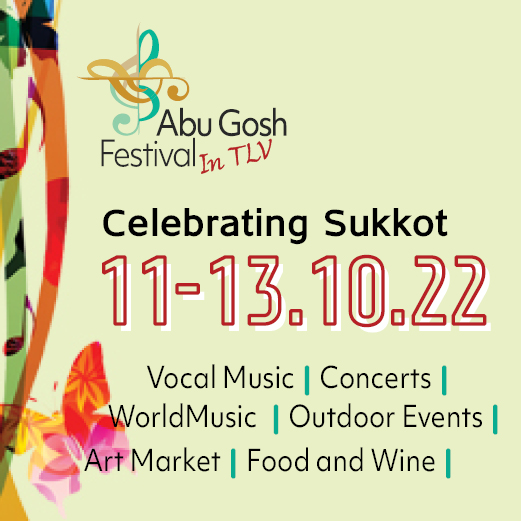
Festival-goers can also choose from music of different countries and ethnic styles, from the toe-tapping music of Argentina in “Concertango - 100 Years of Tango from Gardell to Piazzolla" (Concert No.2) or traditional Celtic and Jewish music, gypsy rhythms and a touch of jazz improvisation, performed by the Tzalool Duo (Concert No.5). East meets west in an "Ethnic Celebration" (Concert No.7), a program that includes Bartok's "Romanian Folk Dances", but also Turkish, Armenian, and Israeli Music, as performed by the Galilee Ensemble. No new faces to Israeli audiences, members of the Hortus Musicus Ensemble (artistic director – Andres Mustonen) will take listeners on a whirlwind tour of the Balkans and the Orient. For those of us who are partial to American country music - getting a buzz from the songs of Bob Dylan, Hank Williams and Johnny Cash - the "Jacks of Diamond" players and vocalists will fit the bill with a "Folk, Bluegrass and Country Celebration" (Concert No.14). For people transported by the music of such greats as Mercedes Sosa, Dorival Caymmi, Villa-Lobos and Ariel Ramirez, Daniela Skorka and guitarist Eyal Leber will perform popular songs from Argentina, Brazil, Venezuela and Chile in “Latin-American Classics'' (Concert No,17). “Passion and Emotion” (Concert No.18), featuring singers Yasmin Levy and Yaniv D’Or with Ensemble Naya, will stir up emotions in an evening of Ladino and Spanish music, not to mention the wild, extreme sentiments of love, injustice, sadness and heartache to be experienced in “Fuego y Tierra” (Fire and Earth) (Concert No.19), a traditional Flamenco performance of song, guitar and dance.
And, no less important, festival-goers will have an opportunity to hear some of Israel's young, up-and-coming choral singers. Three of Israel's prominent youth choirs can be heard performing a wide variety of choral repertoire in “The Next Generation” (Concert No.8).
Winding up the 2022 Abu Ghosh Festival, the Rockberry Sisters, a unique all-female cover band, will indeed rock listeners into reliving the nostalgia of the “50’s and 60’s Greatest Hits” with songs of the Beatles, Aretha Franklin, The Monkeys, The Supremes, Elvis, The Beach Boys, and many more. The 2022 Abu Ghosh Festival also promises outdoor stalls selling up-market arts and crafts.
Ticket reservations: https://www.goshow.co.il/pages/minisite/234
Photo: Yoel Levi
http://pamelahickmansblog.blogspot.com
http://pamelahickmansmusicinterviews.blogspot.com
...
- Details
- Written by the Slovak Institute in Jerusalem
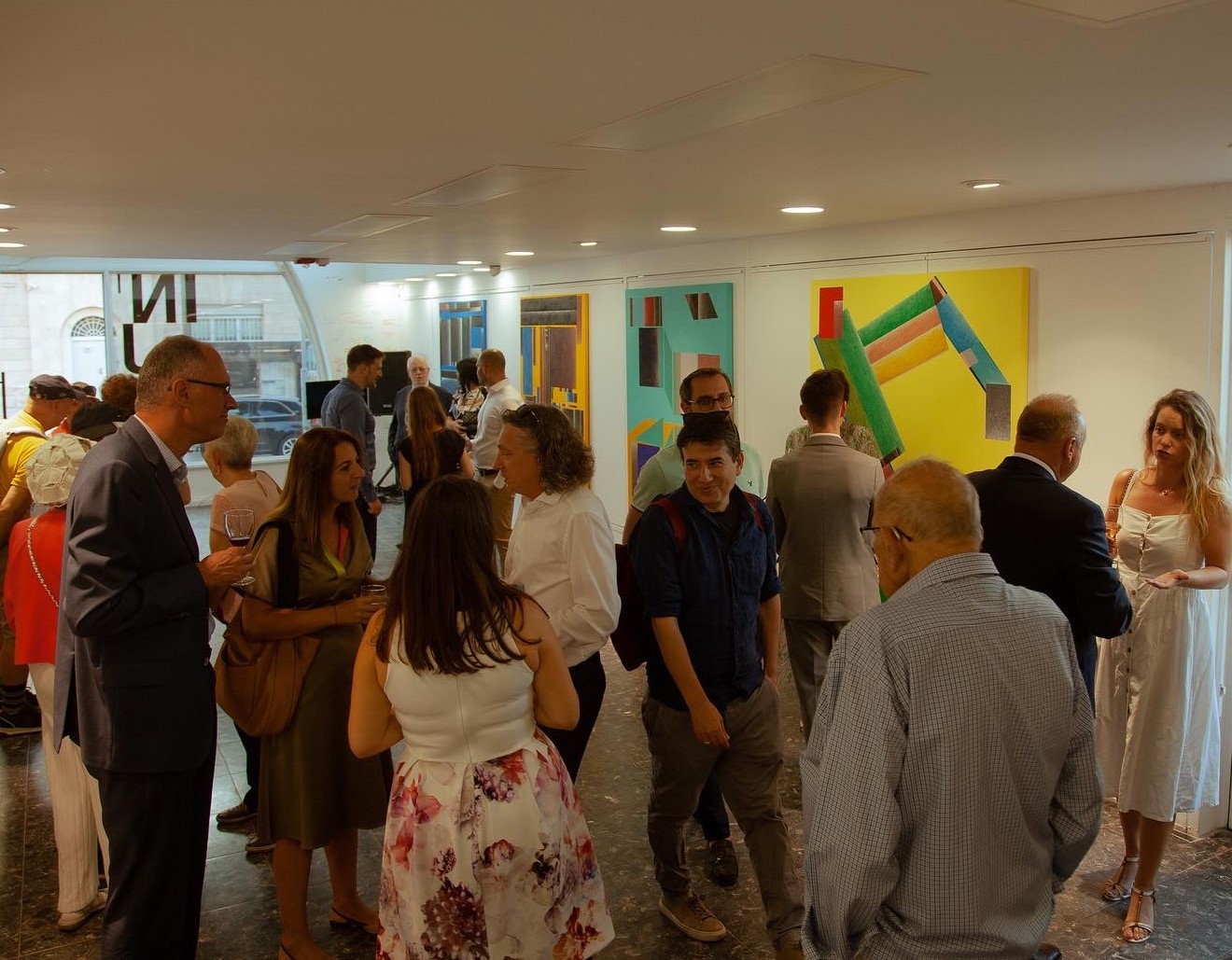
Exceptional Czech – Slovak exhibition of geometric abstraction will be presented in Jerusalem until the end of this year
Opening of the Czech – Slovak exhibition ‘ACID HAUS’ presenting two top-class geometric abstract artists – Ján Vasilko and Karel Štedrý attracted more than a hundred visitors.
On Thursday, September 1st, 2022, the Slovak Institute in Jerusalem hosted an opening of the Czech – Slovak exhibition of abstract art titled ‘ACID HAUS,’ presenting the established painters Ján Vasilko and Karel Štedrý.
Ján Vasilko (*1979) is a graduate of the contemporary art studio of doc. Adam Szentpétery at the Faculty of Arts of the Technical University in Košice. One of the most successful Slovak contemporary painters and a winner of many awards currently has his largest exhibition to date in the Eastern Slovakia Gallery in Košice.
Karel Štedrý (*1985) is a leading representative of the young generation of Czech painters. He is a graduate of the painting studio of Stanislav Diviš at the Academy of Arts, Architecture and Design in Prague. In 2010 he received the ARSkontakt prize for young visual artists. His work is characterized by the blending of apparent opposites – on one hand, that of architecture and classical modernism, and on the other hand of pop culture like graffiti, hip-hop, break-dance, and computer games.
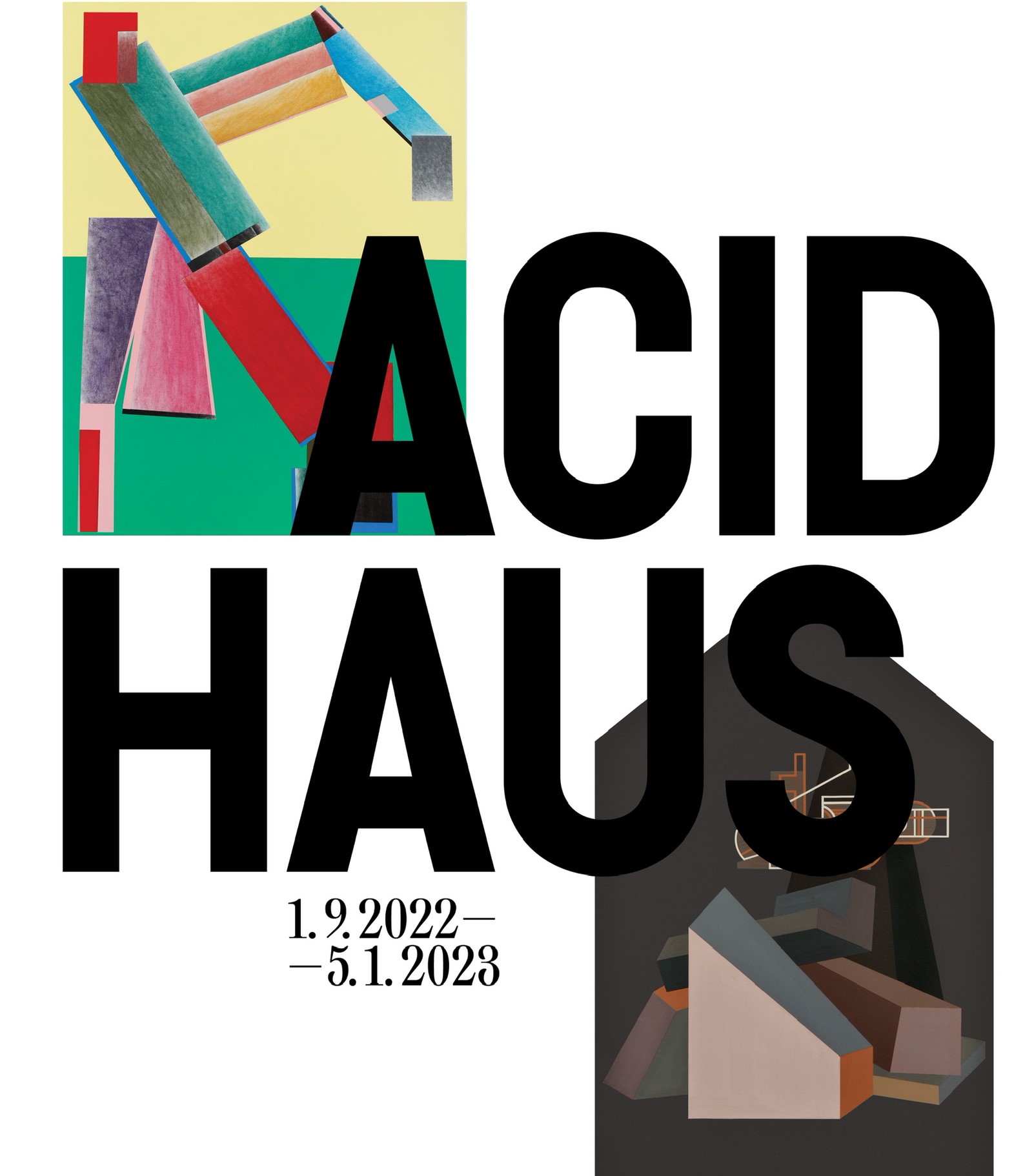
Vladimír Beskid, curator of the exhibition: “This exhibition brings together two artists of the same generation, leading representatives of geometric abstraction in Slovakia and the Czech Republic, in an intense dialogue. In both cases, we can see a certain evaluation of the language of architecture and the visuality of modern art. Both painters are characterized by visual rhythm, order, and systematic composition. In defining the geometric abstract framework and the organized form of lines and surfaces, we find a vigorous dose of playfulness, variability, and dynamism in the visual language.”
Jakub Urik, the director of the Slovak Institute in Jerusalem: “I am glad that this exhibition was a success. I wanted to do an exhibition in Jerusalem, in cooperation with our Czech colleagues, especially because many Slovaks and Czechs living in Israel today remember their homes in Czechoslovakia. And also, because I know the works of both artists and I like the way they both perfectly complement each other in the form and color in their works. After I got the approval from the curator Vladimír Beskid and our Czech colleagues, we got straight to work.”
All those who could not attend the opening can still visit the exhibition at the Slovak Institute in
Jerusalem until January 5th, 2023.
- Details
- Written by Silvia G. Golan & Steven Aiello
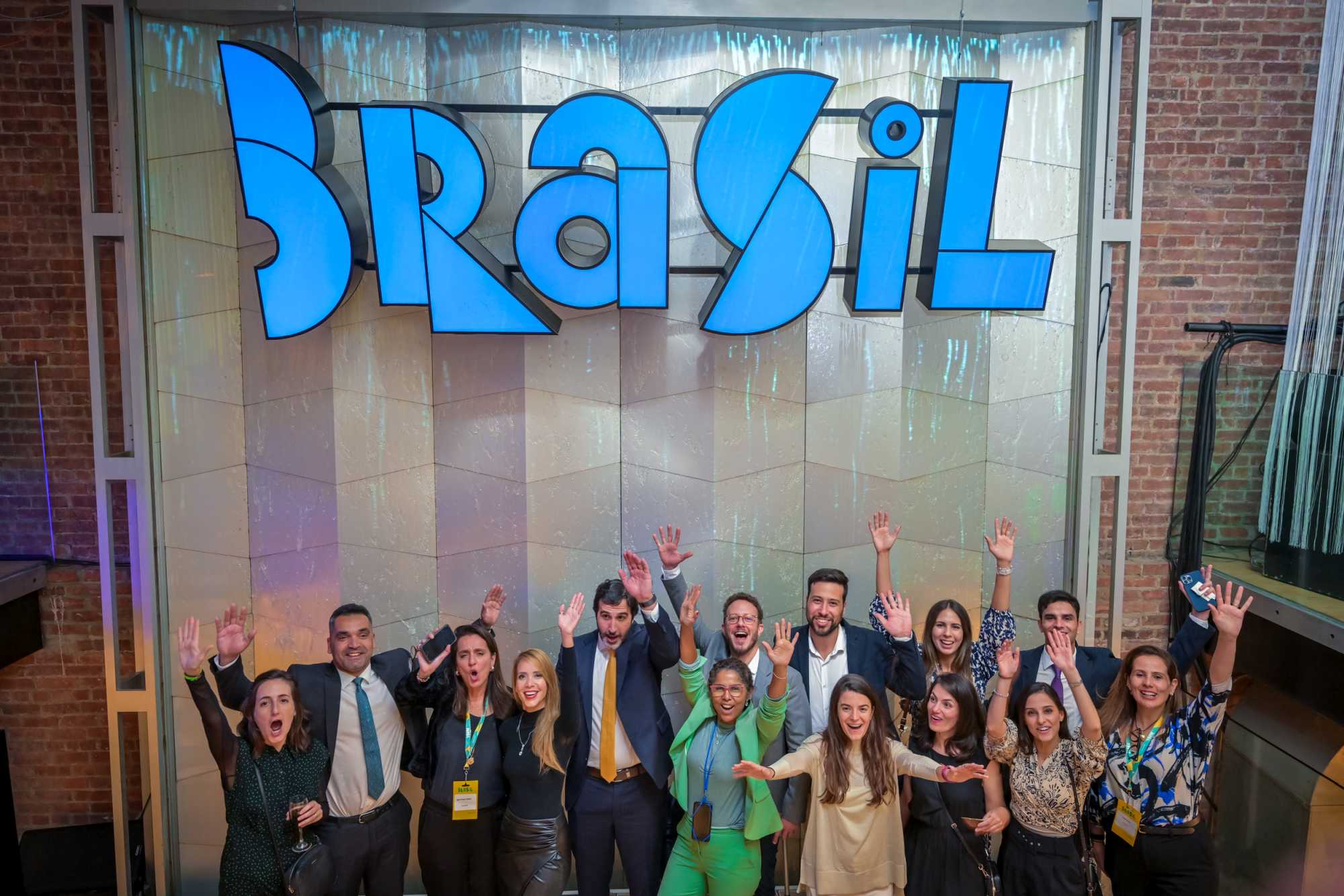
The "Casa Brazil" initiative, organized by ApexBrasil in collaboration with the Brazilian Embassy in Israel, marks the 200th anniversary of Brazil's independence by highlighting Brazilian innovation, and the strong ties between Brazil and Israel, in a series of events held at the Tel Aviv port. As part of the celebration, 40 Brazilian companies from a wide variety of fields including food, beverages and agriculture, housing and construction, technology, digital games, fashion, etc. will present Brazilian innovation, design and culture to the Israeli market.
Casa Brazil is free and open to the public, with activities ranging from business meetings and lectures, to Brazilian jazz, Samba, Bossa nova, and other musical performances, Capoeira demonstrations, and culinary attractions from the best of Brazilian cuisine.
The Brazilian culinary events include cooking shows on Sunday September 4 at 19:00 , Monday September 5 at 14:00, Tuesday September 6 at 19:00, Wednesday September 7 at 20:00, Thursday, September 8 at 19:00, and on Friday, September 9 at 10:30.
Musical performances include Sunday, September 4 at 18:45 (Chorolê – Roda de Choro), Monday, September 5 at 19:30 (Brazilian Jazz and Bossa Nova), Tuesday, September 6 at 20:00 (Batucada), Thursday September 8 at 17:00 (Batacuda) and 19:30 (Roda de Forró). On Monday September 5 at 17:00 and Friday September 9 at 11:00 there will be capoeira shows. Tuesday, September 6 at 19:30 will feature a fashion show.
All activities will be held at Hangar 11, Tel Aviv port, from Sunday-Friday, September 4-9.
The full schedule can be seen here: https://preview.mailerlite.








